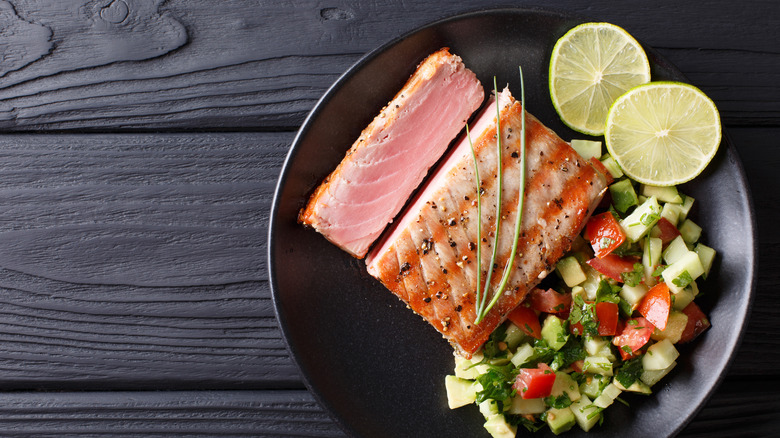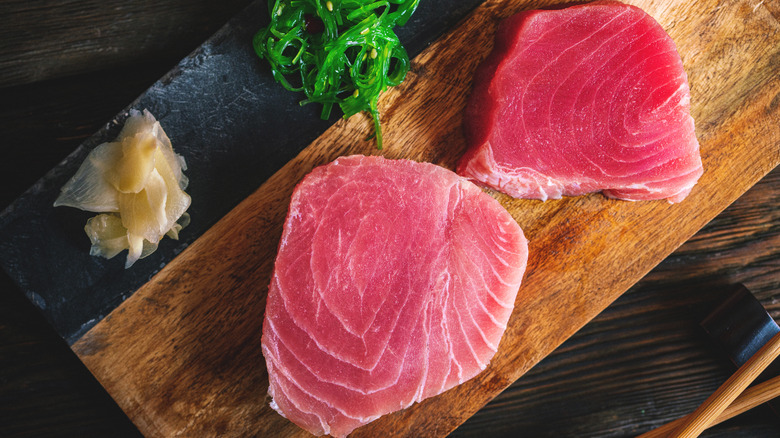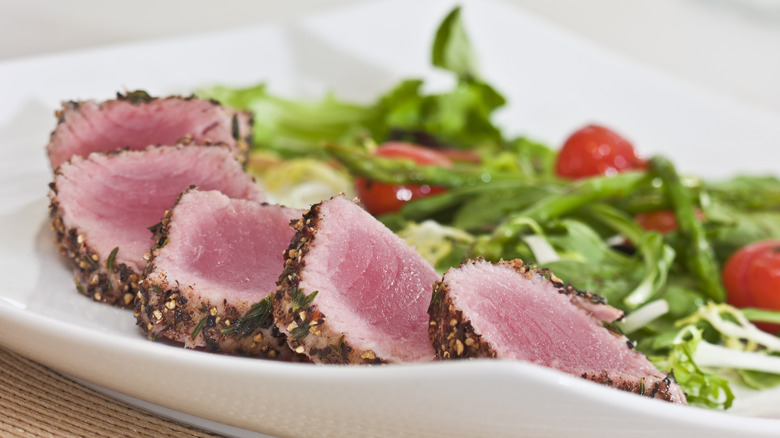How To Achieve The Perfect Cook For Your Tuna Steak On The Grill
When people think of tuna, they're usually thinking of two things: either super high-end sushi tuna or the kind of tuna you get in little cans. Basically, you're either thinking of a pricey gourmet meal or the sort of comfort food you grew up with. But there's another great way to eat tuna that splits the difference: tuna steaks. These thick cuts of fish are perfect when you want a nice, meaty bite of protein but want to keep it light enough for seafood.
And the real key with tuna steaks is right there in the name: You can cook them just like regular steaks. This can certainly involve a pan sear, but you can also grill them just like a ribeye or sirloin. Be forewarned, though: You can't grill them quite like regular steaks, only because of the time involved. You have to make sure not to grill them for long, or you're guaranteed to overcook your dinner.
Watch the sides to see if it's done
Many chefs consider a steak well-done to be a travesty, and there's even some evidence well-done meat is bad for you. A tuna steak well done, though, is far, far worse. Instead of a glorious, light flavor, you get a vaguely sandy brick with nothing left but an unspeakably difficult chew. You can go to medium (although it tastes best seared rare), but definitely don't go beyond it. No matter how long you're cooking a tuna steak, you want to make sure not to overcook it — and not overcooking it means not leaving it on for very long at all.
In general, making sure your tuna steak is cooked perfectly is less about timing than it is about just using your eyes. Tuna is naturally bright red, but it changes color to beige very quickly and very starkly. If your tuna steak's skin is beige all the way around (including on the sides), it's done. It's as simple as that.
You have multiple seasoning options for grilled tuna steak
You might also be wondering about seasoning your tuna steak before it goes on the grill, and the good news here is, you've got options. Tuna steaks take especially well to marinades, particularly when elements of sweetness are involved, since it plays off the natural richness of the fish itself. Asian-themed flavors such as ginger, soy, and sesame are also huge hits. And because you're not trying for a hard sear on the grill or in the pan (just cooking the edges), you don't have to worry about the excess moisture from a marinade getting in the way.
But you shouldn't feel the need to use a marinade either. The beautiful thing about tuna steak is its flavor is enough to stand up on its own. If you just want to season it with a little salt and pepper, it's going to taste great from the grill. Ultimately, the choice is yours, and after you've had a rare tuna steak for the first time, you're definitely going to want to make it a regular part of your dinner rotation.


